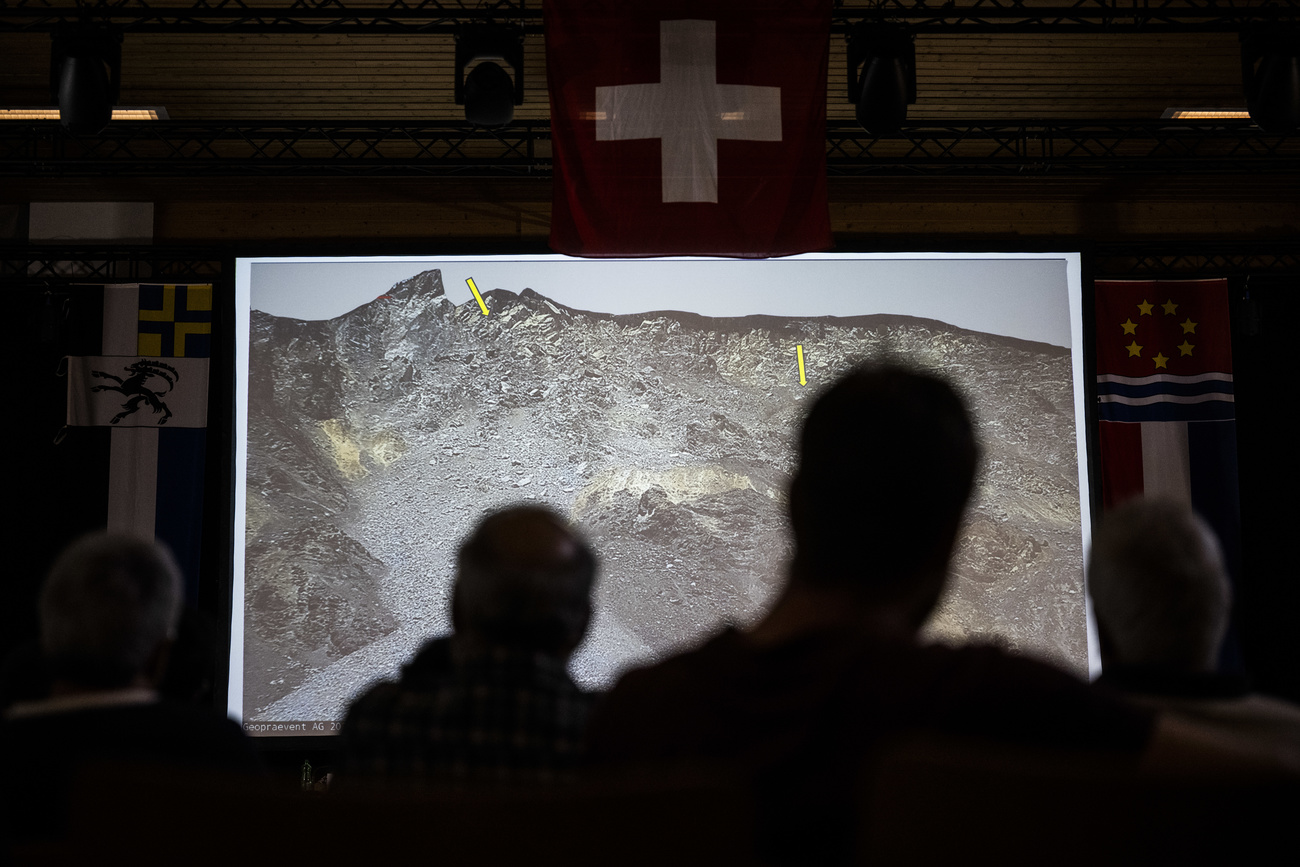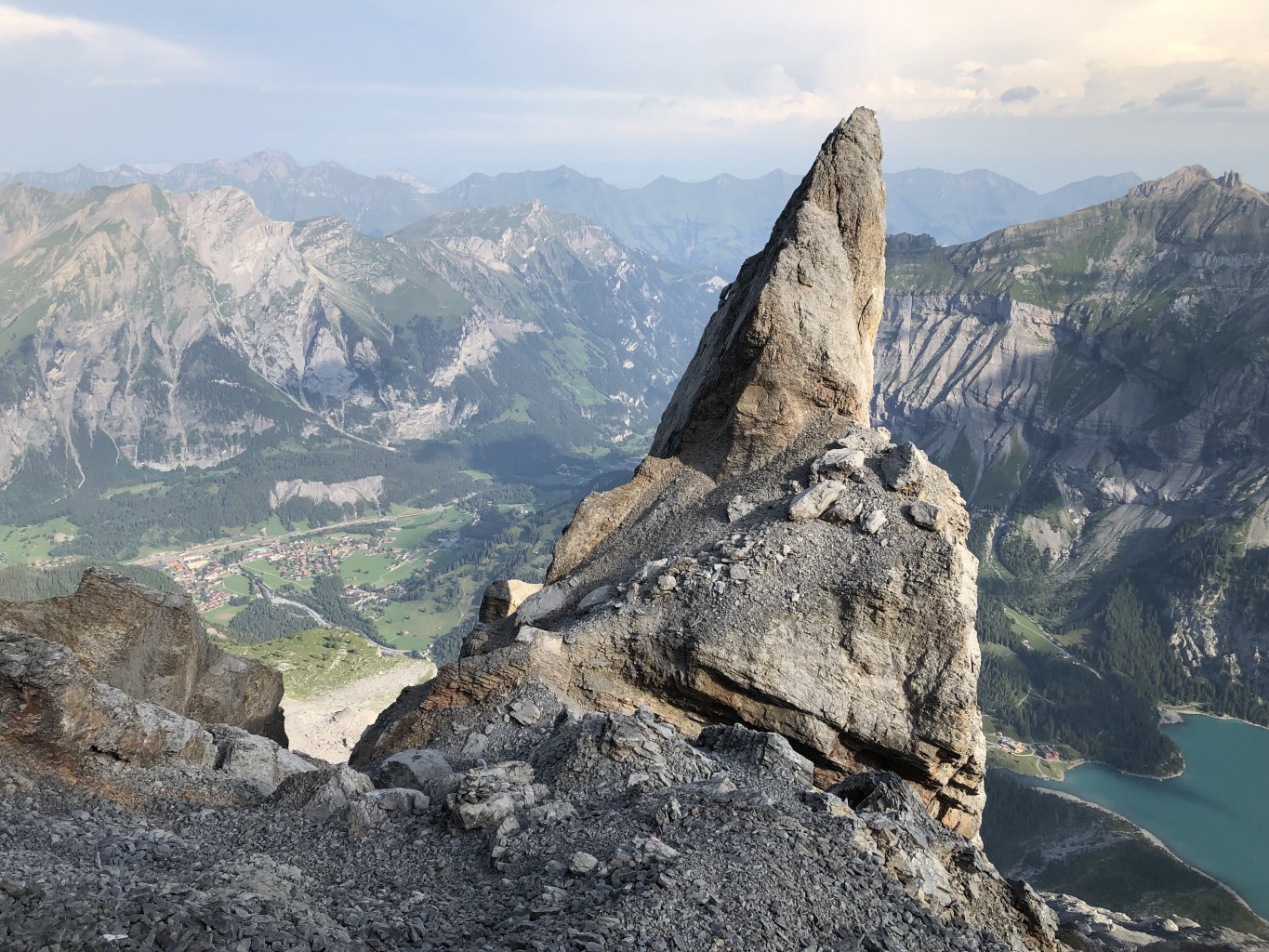
Risk of huge rockslide demolishing Swiss village recedes

The likelihood of a major collapse of the crumbling mountain above Brienz/Brinzauls has decreased but can still not be ruled out, Swiss authorities say.
Cantonal experts informed residents from the evacuated village about the current landslide situation at a briefing in Tiefencastel, canton Graubünden, on Wednesday evening.
The mountain village of Brienz/Brinzauls straddles German- and Romansh-speaking parts of eastern Switzerland at an altitude of about 1,150 metres.
+ The deadliest landslides in Swiss history
+ These Swiss villagers are fleeing an imminent Alpine rockslide
The village’s 84 residents were evacuated on May 12 after geologists warned that a mass of two million cubic metres of rock looming over the village could break loose. Experts initially predicted the mass of rock could break loose in the next one to three weeks. They saw a 60% chance of the rock falling in smaller chunks that might not reach the village or valley but also a 10% chance that the entire mass could tumble down, threatening lives and property.
One metre a day
However, they now appear more cautious about a worst-case scenario.
“Specialists do not know when and how this mass of rock will break off, but a large-scale rockslide has become less likely, even if it cannot be ruled out,” Stefan Schneider, geologist and head of the early-warning service, told villagers on June 7.
Schneider said the exposed part of the slope has been slipping at almost one metre per day, about ten times faster than a month ago.
On Wednesday local authorities allowed a maximum of 30 people into the village at a time to let them retrieve essential items from their houses.
Experts say that, unlike many other unstable parts of the Alps, the Brienz/Brinzauls rockslide threat is not linked to global warming, as there is no thawing permafrost on the nearby mountain.

More
Climate threats: living in the shadow of a crumbling mountain

In compliance with the JTI standards
More: SWI swissinfo.ch certified by the Journalism Trust Initiative































You can find an overview of ongoing debates with our journalists here . Please join us!
If you want to start a conversation about a topic raised in this article or want to report factual errors, email us at english@swissinfo.ch.